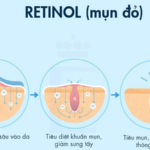The Nutritional Value of Carrots
Carrots were first cultivated in Afghanistan around 900 AD. Many people are familiar with carrots for their vibrant orange color, but in fact, this root vegetable also comes in other colors such as purple or yellow, red and white.
This popular and versatile vegetable can have slightly different flavors depending on its color, size, and place of cultivation. Carrots have a mild sweetness, but they can sometimes have an earthy or slightly bitter taste.

A half-cup serving of carrots contains:
25 calories;
6 grams of carbohydrates;
2 grams of fiber;
3 grams of sugar;
0.5 grams of protein.
Carrots are a rich source of important vitamins and minerals. Depending on a person’s daily nutritional needs, a half-cup of carrots can provide:
73% of the daily requirement for vitamin A;
9% of vitamin K;
8% of potassium and fiber;
5% of vitamin C;
2% of calcium and iron.

Benefits of Eating Carrots Properly
Now that we know the vitamins in carrots, surely many of us would like to incorporate carrots into our daily diet. But first, let’s see with the nutritional composition table above, is eating a lot of carrots good for you? Eating carrots properly can bring many benefits to your health!
Benefits of Vitamin A in Carrots
Carrots are one of the top foods rich in vitamin A. Vitamin A in carrots has the following effects:
Carrots are rich in beta-carotene, a precursor of vitamin A, along with vitamin A itself, which helps us maintain healthy eyes. Beta-carotene helps protect the eyes from sunlight and reduces the risk of visual problems such as cataracts and macular degeneration. Studies have shown that high blood beta-carotene levels can reduce the risk of macular degeneration by up to 25%.
Retinol in carrots is an active form of vitamin A that can combine with opsin protein to form rhodopsin molecules, which are responsible for night vision and color perception. It also helps protect the retina and cornea.
Vitamin A is necessary for the formation of new skin cells, preventing dry and cracked skin. Retinol, a derivative of vitamin A, also stimulates collagen production, reducing wrinkles on the skin.
Carotenoids, precursors of vitamin A found in carrots, have anti-cancer effects. Retinoids have also been shown to inhibit the growth of cancer cells such as ovarian cancer, breast cancer, and bladder cancer.
What vitamins are in carrots? Carrots contain a large amount of vitamin A. This vitamin is essential for the reproductive process in both males and females, as it is necessary for the development of sperm and eggs. Vitamin A is also needed for the development of a fetus and embryo.
Carotenoids, precursors of vitamin A found in carrots, are powerful antioxidants that participate in the production of immune cells, enhancing the body’s immune system.

Benefits of Vitamin C in Carrots
Vitamin C in carrots also acts as an antioxidant and provides several benefits such as:
Vitamin C in carrots helps boost the immune system, increases resistance, stimulates collagen production, promotes wound healing, and is good for your skin. Carrots are considered a miraculous ingredient for the skin.
Vitamin C helps enhance the body’s ability to absorb iron.
Vitamin C in carrots is good for mood, reduces stress, and reduces the risk of memory loss.
According to research, people with high blood levels of vitamin C can reduce the risk of stroke by up to 50%. Consuming carrots is a safe way to supplement vitamin C in the body.
This vitamin helps the body fight free radicals, reduces cholesterol levels in the blood, thereby preventing hypertension, cardiovascular diseases, and cancer.
Vitamin C combined with vitamin E, beta-carotene, and zinc in carrots helps reduce the risk of macular degeneration.
Benefits of Vitamin K in Carrots
When learning about the vitamins in carrots, you may also know that this vegetable contains a lot of vitamin K. Vitamin K in carrots has the following effects:
Stabilizes calcium levels in bones, supports the prevention and limitation of bone degeneration and osteoporosis.
Vitamin K in carrots also helps prevent arterial plaque through the function of removing calcium from the blood, reducing the risk of plaque buildup in arteries.
It is also a natural substance that can fight against cancer cells such as prostate cancer, colorectal cancer, stomach cancer, and throat cancer.
Vitamin K stimulates blood clot formation, helping wounds stop bleeding quickly.
Other Nutritional Components in Carrots
Carrots have a rich nutritional composition. In addition to being rich in vitamins, carrots are also rich in antioxidants, amino acids, and minerals. Therefore, when using carrots properly, you will receive many other health benefits such as:
Lutein in carrots helps prevent macular degeneration, which is good for vision.
Carotenoids in orange and yellow carrots, along with anthocyanins in red and purple carrots, have anti-cancer effects.
A carrot bulb fulfills about 4% of the body’s daily potassium needs, thereby helping to reduce the risk of high blood pressure and cardiovascular problems.
The fiber in carrots promotes bowel movements, reduces the risk of constipation, and supports weight loss.
Red carrots contain lycopene, which helps prevent heart disease.
Carrots are a low glycemic food with a glycemic index of around 39, making them a good choice for diabetes patients.
Risks of Eating Too Many Carrots
Although carotene is beneficial for health, if you consume too much beta-carotene, your skin may turn yellow-orange. This condition is called carotenemia, which is relatively harmless and can be treated. However, in severe cases, blood carotene can interfere with the function of vitamin A, affecting vision, bones, skin, metabolism, or your immune system.
Consuming too much beta-carotene can also cause problems for people with disorders of vitamin A metabolism, such as hypothyroidism.
Some people may also be allergic to compounds in carrots. If you experience symptoms such as hives, swelling, and difficulty breathing after eating carrots, you need urgent medical care. When symptoms become severe, the patient may experience anaphylactic shock, a rapidly progressing life-threatening reaction. People with a history of carrot allergies should carefully check the ingredients in smoothies, vegetable soups, and a variety of other products before consumption.
Carrots are an excellent source of Vitamin A, C, and K. Vitamin A helps maintain healthy eyes, protects against visual problems, and is essential for skin health and new cell formation. Vitamin C boosts immunity, enhances iron absorption, improves mood, and reduces the risk of stroke. Vitamin K supports bone health by stabilizing calcium levels and helps prevent arterial plaque buildup.
Carrots are rich in antioxidants, amino acids, and minerals like potassium and fiber. Lutein and carotenoids in carrots promote eye health, while anthocyanins have anti-cancer properties. The potassium in carrots helps regulate blood pressure, and the fiber content aids digestion and weight loss. Additionally, red carrots contain lycopene for heart health, and carrots’ low glycemic index makes them suitable for diabetics.
Excessive beta-carotene consumption can lead to a harmless condition called carotenemia, causing the skin to turn yellow-orange. In severe cases, high blood carotene levels can interfere with Vitamin A function, impacting vision, bones, skin, metabolism, and immunity. People with vitamin A metabolism disorders, such as hypothyroidism, should be cautious. Additionally, some individuals may have carrot allergies, requiring urgent medical attention if symptoms like hives, swelling, or breathing difficulties occur.
Cook the Perfect Carrot Soup for Babies That Moms Will Love – Ready in No Time!
The recently released GREEN Electric Machine pressure cooker will help mothers cook carrot soup and provide their children with the nutrients they need to keep their eyes healthy. The pressure cooker will make it easier to whip up this nutritious snack that can provide kids with vitamin A supplements for improved vision.
The GREEN Electric Machine pressure cooker has just been unveiled, providing mothers with a convenient way to prepare carrot soup for their children. This healthful snack can give kids the vitamin A supplements they need to prevent eye diseases, promote healthy eyesight, and enjoy a delicious meal.
How to Effectively Treat Fishbone Issues at Home
Everyone loves feasting on the deliciousness of fish during the holidays. But, unfortunately, choking on fish bones is an unavoidable issue that may lead to devastating consequences if left unattended for a prolonged period. Let’s see how Dien May Xanh can help us out when fish bones get stuck in our throat.





































